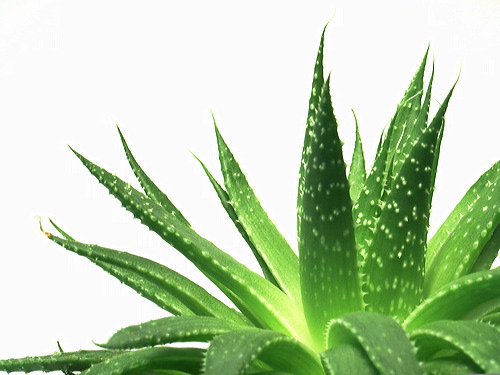Herb Treatment – Aloe vera

Aloe
Also known as medicinal aloe, medicine plant, burn plant
The name comes from the Arabic “alloeh”, meaning “bitter”, because of the bitter yellow liquid found between the gel and the leaf skin (once used to paint on the nails to deter nail biters).
This succulent, clump-forming perennial reaches 2-3 ft (60-90 cm), growing straight from the soil as a rosette of thick, fleshy, spear like, spiny toothed, gray-green leaves. The tall, annual flower head bears yellow-orange flowers on 3 ft (90 cm) spikes.
Uses: HERB
The best known use of aloe is the topical treatment of minor burns and scalds.
Slice open the leaf and apply the clear, pale green gel for pain relief, and antisepsis. The gel can heal wounds, soothe irritable rashes, stings, bites, and ulcers, and help manage acne and eczema.
Internally, the stabilized juice (bought from health-food stores) is used to ease arthritis symptoms, digestive disorders, ulcers, colitis, constipation, irritable bowel syndrome, and inflammatory bowel complaint.
The syrupy aloe gel can be applied as a moisturizing treatment, helping to keep skin smooth and supple, and delay the effects of ageing. Its’ widely used in commercial toiletries including shampoos, face and hand creams, and suntan lotions.
Caution: Not to be used internally during pregnancy or while breastfeeding; or if you have diarrhea, loose stools, or abdominal pain.
Growing and harvesting
Aloe is easily grown. It needs a dry, well-drained spot, as it will quickly die in wet soil. It can survive long, hot summers with little water. It will look a bit sad and thin by the end of the season, but will become plump and juicy once the rains come.
Aloe won’t tolerate heavy frost, nor the severe heat of the tropics, unless it is grown in semi-shade. As the plant grows and matures, it will form little suckers around its base that can be gently pulled away and planted into pots or directly into the garden, or propagate from stem cuttings. Cut leaves as required from two- to three-year-old plants.

